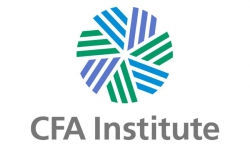Soaring Above International CFA Exam Averages
PROVO, Utah – Dec 13, 2018 – The Chartered Financial Analyst (CFA) Program exams are among the most challenging professional exams in the world, with pass rates typically under 45 percent. However, thanks to an outstanding prep course and generous financial support, BYU students shatter the worldwide averages.
Last June, 94 percent of BYU students who sat for the Level I CFA exam earned a passing score, compared to a general pass rate of just 43 percent. Students who complete Finance 490R, BYU Marriott’s CFA prep course offered every Winter Semester, are even more likely to pass the test. A staggering 100 percent of all 490R students who went on to sit for the Level I exam were able to pass in June 2018.
The CFA Program is a series of three demanding exams that aim to provide both students and young professionals with a strong understanding of advanced investment analysis and real-world portfolio management skills. The CFA Institute (CFAI) recommends that students dedicate at least three hundred hours of study to each of the three exams.
For BYU students, part of those grueling three hundred hours can come in conjunction with Finance 490R, taught by finance professor Jim Brau. The CFA prep course is structured around a series of practice exams and quizzes that serve as a barometer for students wondering how to allocate their study time. “I’ve never had someone earn an A in my class who has not passed the real test,” Brau says. “The course definitely lets you know where you are.”
Though the CFA Program requires a massive time commitment and unique dedication, deciding whether or not to pursue a CFA distinction is not just a question of work ethic. “The CFA exam is not right for all of the finance disciplines,” says Brau. “For example, if you want to go into corporate finance, this won’t add that much value. But if you want to go into investment banking or asset management, this is as important, or more important, than an MBA.”
For those who possess both the career ambition and the work ethic, becoming a CFA charterholder is usually well worth the effort. These professionals are in high demand and usually enjoy higher compensation than non-charterholders.
“We’ve even had recruiters come talk to our students and say that when they get a stack of résumés, if there’s one in there that says ‘I’m a CFA candidate, and I’ve already passed Level I,’ it immediately goes to the top of the stack,” says Amy Densley, assistant program director in the Department of Finance.
As a university that boasts five CFA charterholder faculty members, BYU provides CFA Program resources that few universities can match. Brau explains that the finance curriculum is specifically designed with the CFA Program in mind. The decision to incorporate CFA topics in the coursework goes a long way to help students such as Sean Lindenau, a senior from Fresno, California, studying finance, who passed the CFA Level I exam last June.
“I did not track my hours, but my best guess is I studied around 150 hours directly for the CFA exam,” says Lindenau. He attributes the shorter study time, well below the three hundred hour average, in part to the finance junior core curriculum.
In addition to these academic resources, BYU Marriott provides generous financial aid for CFA prospects. The three CFA exams cost a combined total between $2,400 and $4,590, depending on fee deadlines. To help offset these costs, the Peery Institute of Financial Services fully reimburses every BYU student who passes any of the three exams. “We used to give partial scholarships to students up front, but students weren’t passing,” says Densley. “Giving them the money beforehand wasn’t working to help motivate them.”
After transitioning to the reimbursement model, pass rates for the CFA exams increased significantly, and the Peery Institute has maintained that policy. After last June’s exceptional pass rates, BYU students have set a high bar, but the finance department is confident that the unique CFA resources it provides will continue to yield impressive results.
Media Contact: Chad Little (801) 422-1512
Writer: Carson Perry




